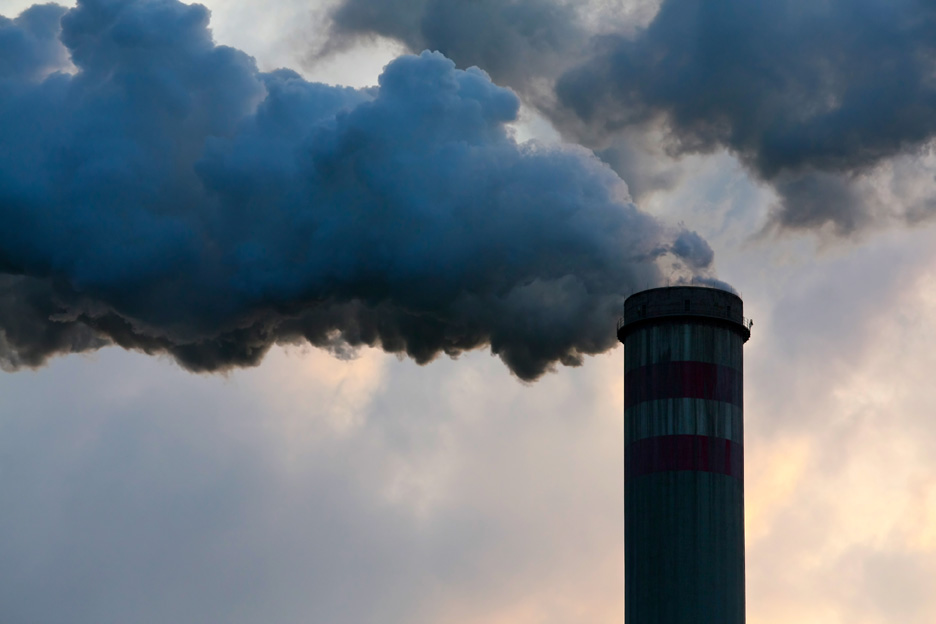Texas has filed so many suits against the federal government in the last few years that it’s hard to keep track of them. But one ongoing case has Texas teamed up with a global warming-denying fringe group that has its roots deep in Texas coal money and that has put the state on the same bench as an outfit that calls for more carbon dioxide in the air because “warmer is better.”
Worse, the suit, which deals largely with the Environmental Protection Agency’s new car exhaust standards, is challenging those standards — even though the auto industry is fine with them.
The lawsuit, filed in 2010, pits Texas, Virginia, and several other states along with a very private group called the Coalition for Reasonable Regulation against the EPA and its new standards for greenhouse gas emissions. The case is in federal appellate court in Washington, D.C., where a three-judge panel heard oral arguments in late February. Siding with the EPA are auto manufacturers and a dozen states, including California and New York.
According to the EPA, at stake in the lawsuit is nothing less than the health of everyone in the country. For the major polluters on the other side — many of which are also major employers and political campaign contributors — what’s at stake is their financial bottom line.
At the heart of the suit, which combines a number of separate actions against the EPA, is the agency’s 2009 finding that six greenhouse gases pose a credible physical danger both to people alive today, via pollution-caused illnesses, and to future generations because of the contributions to climate change. Those gases include carbon dioxide, methane, nitrous oxide, hydrofluorocarbons, perfluorocarbons, and sulfur hexafluoride. The findings were the result of a 2007 U.S. Supreme Court decision in a Massachusetts case in which the court held that those gases could be regulated under the federal Clean Air Act. The EPA spent two years on scientific studies that led eventually to the first-ever set of national limits on global warming-related pollution.
An EPA official characterized the new regulations to Fort Worth Weekly as “a common-sense step that addresses these harmful pollutants and protects the public health and environment,” backed by sound scientific evidence.
Texas Attorney General Greg Abbott disagreed. The “EPA’s crusade to regulate [greenhouse gases] at any cost and at breakneck speed has created an environment of regulatory and economic uncertainty at precisely the wrong moment,” he wrote in a court brief. According to the Texas Tribune, he further argued that Texas “doesn’t have the time or resources to comply” with the new regulations. The new regulations, he said, would hurt the state economy. (Similarly, the giant Luminant power company claims that it might have to shut down two coal-fired plants and lay off 500 people because of another EPA ruling, regarding cross-state pollution.)
The lead plaintiff in the current lawsuit is the Coalition for Responsible Regulation, which includes several large coal, oil, and chemical companies. The coalition, which provides very little public information about itself, claims that large industrial polluters are being unfairly targeted by the EPA.
Coalition attorney Eric Groten, who describes carbon dioxide as a “benign, naturally viable constituent of clean air,” said his clients intend to “expose the fundamental flaws in EPA’s misuse of the Clean Air Act” as a pretext “to instead haphazardly redirect U.S. energy and industrial policy.”
Coal-fired plants are major producers of CO2, and it appears that the coalition shares offices with Quintana Minerals Corporation, whose CEO, Corbin J. Robertson Jr., is the largest owner of coal reserves in this country other than the federal government. Robertson is also the CEO and largest shareholder of the coal giant Natural Resource Partners.
According to the Washington Post, Robertson is also one of the partners in a website called Plants Need CO2, which is devoted to convincing the public that the more carbon dioxide that can be put into the atmosphere the better, because “warm is better.” The site’s stated mission is “to educate the public on the positive effects of additional atmospheric CO2 and help prevent the inadvertent negative impact to human, plant, and animal life if we reduce CO2.” The site claims that more carbon dioxide in the atmosphere will produce more food per acre of farmed land.
Calls to Quintana Minerals Corporation in Houston were not returned. H. Leighton Steward, a veteran oil industry executive and the only individual named on the Plants Need CO2 website, responded to an e-mail inquiry but would not discuss the site’s connection to Quintana.
He did say that “[T]rue global catastrophe would be to see the world’s best airborne fertilizer” — that is, CO2 — reduced because that would hurt global food supplies.
David Doniger, policy director at the climate center of the National Resources Defense Council, called the Coalition for Responsible Regulation a “group of the most extreme segments of the oil and coal industries, right-wing think tanks, and ideological political figures like Texas Gov. Rick Perry. … These are the most extreme attackers of the idea of climate change. And they’ve challenged every step the government is taking in grappling with carbon pollution.”
The goal of the CRR lawsuit, Doniger said, is “to bring down the new standards for car emissions, and even the auto industry is behind those.” Those standards will force most cars and light trucks to get 55 miles to the gallon by 2025, while reducing emissions by half.
“What they’re really after, and the states like Texas and Virginia whose attorneys are presenting the case, is to get Congress to strip the EPA of the right to regulate carbon,” Doniger said. “I’m certain that the CRR and others attached to these lawsuits thought they would have blown away the Clean Air Act in Congress by now.”
That they haven’t, he said, is because regular citizens have come to the conclusion that “the EPA should be the cop on the beat, protecting them from the pollution created by big industry and the illnesses and environmental problems that come with that.”
Ken Kramer, director of the Lone Star Chapter of the Sierra Club, said Texas is involved in so many lawsuits against the EPA that it’s tough to keep them straight.
That agency took another bold step in late March by proposing national limits on carbon dioxide emissions from new electric-generating plants. The same states, industries, and groups currently suing the EPA are expected to try to derail those standards as well.
“It’s a shame that special interests are attacking the EPA instead of looking out for public health,” said Patrick Gallagher, legal director for the national Sierra Club. “All of these regulations are being challenged because they affect the bottom line of businesses. Were industry more forward-looking, they would realize that more jobs and more prosperity are the result of improved air and water quality. That’s been proven time and time again.”












